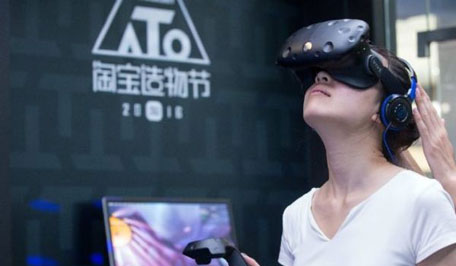One of the most popular catch phrases in the tech world this year is, of course, virtual reality. And it won't surprise you that the VR industry is branching out beyond entertainment.
Alibaba subsidiary Ant-Financial has just revealed the world's first payment application that works in the virtual world. The company aims to roll out its VR Pay to the masses by the end of the year. While it sounds cool enough, is your wallet ready for it?

Alibaba reveals world's first VR payment app
Technology has made it possible for you to go out and enjoy yourself without leaving home, and now there's a way for you to pay for an enhanced virtual experience without having to leave it. The new app lets you pay directly for virtual reality add-ons -- it lets you spend money in a virtual world.
"The league of VR applications is getting bigger, with applications to shop, to game, and to watch live broadcasts. Those apps often offer in-app purchases," said Wu Jun, VR pay team, Ant-Financial.
"VR Pay provides a convinent solution to users who want to do that, without having to leave the virtual reality scene. At the moment, this version of VR Pay only focuses on mobile devices and the VR content is projection of what's on the phone."
VR Pay is expected to enhance the VR experience by keeping people from having to be interrupted from the VR game they are playing or the VR live broadcast they are watching. And as the industry develops, companies like Ant-Financial are extending the technology to make it useful in fields outside of just entertainment.
"Entertainment use will continue to be the focus of VR, as in games and 360 degree video viewing, but the industry is slowing moving to other areas. VR is expected to be used in shopping and even real estate soon," said Zhao Ziming, analyst, Analysys.
Zhao says, however, that it may be some time before the new VR applications being accepted by large numbers of people.
Ant-Financial admits that their mobile based VR Pay add-on only provides a limited virtual experience, and that to achieve the full potential of VR requires substantial upgrades to both the software and the hardwdare that runs it. That means more money.
The newly launched Play Station VR will cost ten times more than smart phone VR headsets. PC based VR products like HTC Vive and Oculus Rift can deliver top-notch visual experiences, but only with a cost close to 10,000 yuan.
In addition to that you need a powerful computer to run the VR device, and that could run as much as another 10,000 yuan. And that's real money, not virtual.















